

RITA ® Award-Winning Author of Fantasy Romance


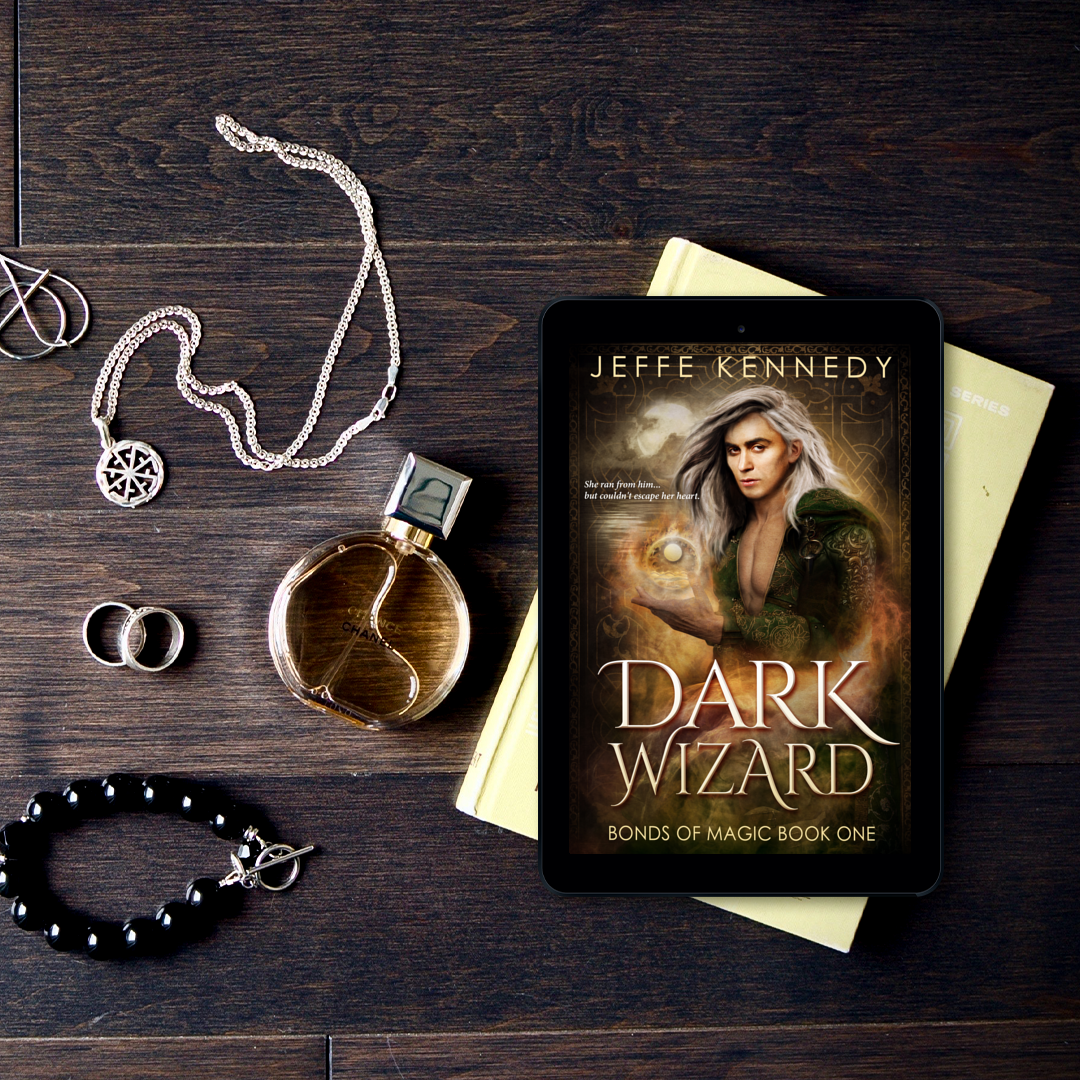
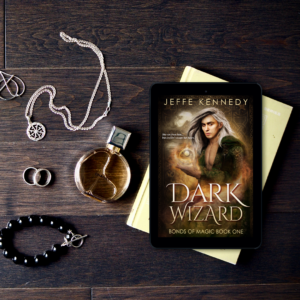

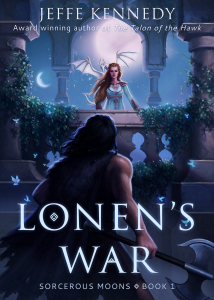
I received a very interesting set of questions on Facebook from a reader who just finished reading WARRIOR OF THE WORLD. They’re such good questions that they deserve a thoughtful answer, so I decided to do that here. I hope she doesn’t mind!
She said:
…one of the things that I feel like you do extremely well is create empathy for both “sides” of a war/ disagreement/conflict. In art, as in life I see most often empathy/sympathy being created with blame/making the other side the “bad guy”, etc. You seem to…skip that part? So this is a two part question:
1. Do you find yourself able to do that within your own life? (like are you less of a blamer, more of a solution finder – I’m working so so so hard on that with my kids and am interested in the HOW of it)
2. And two, HOW do you do it, first within yourself, and then secondarily, how do you WRITE it so that I, as a reader, don’t find myself coming down overly hard on one side – how do you make the gray the overwhelming tone, rather than the black and white?
So, here are my answers, plus a few more thoughts.
Looking at the story in WARRIOR OF THE WORLD, part of what I wanted to get was the female perspective on war. I think a whole lot of war – both in real life and in fiction – tends to be driven by male aggression. It’s not across the board, but I think it’s a strong driver, particularly in this century when so many wars have been driven by political ambitions and corporations wanting to monopolize resources. The war pending in this book is about controlling scarce resources, with those on the lean end wanting to attack those with plenty. The women in the book point out that just because one arm of a society is aggressive, however, doesn’t mean that everyone in that culture feels the same. A large part of any society gets dragged along with whatever the leaders decide – and often those being dragged along are women, children, the elderly, and those unable or unwilling to be warriors, for whatever reason. I think this was maybe different in other wars. I like to imagine the women of the American Revolutionary War and Civil War were much more involved because those were conflicts that directly impacted daily living and quality of life.
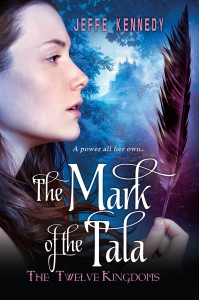
Now, men often criticize women writers for focusing on what they perceive as minutiae. Naturally, however, the person who sits down at table to consume a meal has a very different perspective than the person responsible for putting three nutritious meals on that table every day. This doesn’t have to fall out along gender lines, but it often does, particularly in the last century. When you have pretty much one gender in another country fighting a war and the other back at home, then you know which one is thinking about the daily minutiae of living. So, in this story, I wanted to deliberately draw that out and have the women of the family say, “Hey, who are you raging at? Do you think the babies and eldsters want to attack you?” They’re taking that position of recognizing the other’s story.
This is something that’s important to me as a person and as a writer, which is part of why I love the trope of enemies-to-lovers. That’s part of why I put LONEN’S WAR at the top, though I also explored similar themes in THE MARK OF THE TALA. That LONEN’S WAR cover encapsulates a great deal of that theme for me – of confronting the supposedly monstrous enemy and coming to not only understand them, but to love them. That whole Sorcerous Moons series is about two warring cultures coming together in part by learning each other’s stories.
How’s that for a long answer?
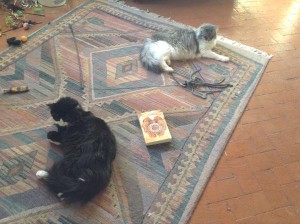 I’m over at Word Whores, giving my tricks for putting more emotion on the page – something that was not intuitively easy for me.
I’m over at Word Whores, giving my tricks for putting more emotion on the page – something that was not intuitively easy for me.
 In working through my Sapphire line edits, I’ve learned something new about myself.
In working through my Sapphire line edits, I’ve learned something new about myself.
I know – who’da thunk it?
And yes, the line edits have been dead easy. I’m sending them off today. I don’t know why I was so worked up on Tuesday about it – thanks to all of you who said supportive things.
At any rate, one of the things my editor, Deb Nemeth, picked out was phrasing that kept the reader out of deep point-of-view (POV). The reader, instead of feeling like the reader she is looking through the character’s eyes, feeling what they feel, can get yanked out by these filter words and phrases. So an example would be “she saw the cat prancing through the cactus” instead of “the cat pranced through the cactus.” The second takes out that step of observation.
It’s been pointed out to me before that I do this. As an essayist, this writing style is no problem. Actually, it lends itself, because the art of the personal essay largely relies on being able to take that step back and observe your own life. But for fiction-writing, especially genre fiction, which is all about sweeping the reader up in the whirl of a new world, you don’t want to do this.
I’m learning.
Deb is an excellent editor and quite deft at pointing out where I create this objective distance. What I’m discovering is why it’s been hard for me to lose this kind of lens.
It’s because that’s how I see my own life.
Ever since I can recall, I’ve kind of narrated my own experiences. My first memory, back when I was in diapers, watching my parents drive away with all the abandonment grief that goes with it (they, um, were going to a movie), was also accompanied by a sense that, hey, here I am in a body and isn’t this interesting? There’s always been that part of me that steps back and observes objectively. Yes, I sometimes refer to myself in the first person. Sometimes I give my remarks dialogue tags. All in fun, but I might IM to a friend “bitch!” and then “and I mean that in the nicest way possible, she added hastily.”
Thus, for my characters to step back and observe, to have “she said to herself” absolutely reflects how I see the world.
It’s good for me to understand this. On the Meyers-Briggs personality test, I come out as an INTJ (introvert-intuitive-thinker-judger). One way they describe INTJs is:
… many INTJs do not readily grasp the social rituals; for instance, they tend to have little patience and less understanding of such things as small talk and flirtation (which most types consider half the fun of a relationship). To complicate matters, INTJs are usually extremely private people, and can often be naturally impassive as well, which makes them easy to misread and misunderstand.
All very interesting to me – and helpful in understanding why I behave in relationships the way I do. But it never occurred to me to examine how that influences how I *write* also.
In the end, it’s just another acquired skill in the craft of writing. It’s easy to say “that’s just how I write” or “that’s my voice” or “that’s how I see the world.” But, depending on what you’re trying to accomplish in a story, you may have to alter those things, to maximize the effect for the reader.
Which is, after all, the point of it all.

“Still Life: Snow on Luminarias”
or
It’s snowing!!!
Okay, I know a lot of you out there have had way more than enough of the stuff, or have been drowning in rain, but we’ve had an unseasonably mild and dry winter so far. I’m a Colorado girl from way back and I like a little snow with my Christmas. We might even get heavy snow.
We’re snow-globe socked-in and I’m chortling with glee.
Perhaps I should break out into a little mash-up of snow songs. Don’t worry – I’ll lip synch.
I hit a personal best on the treadmill this morning: 1.45 miles in 20 minutes. Yeah, all the athletic people just snickered. I know it’s not much. But going that fast pushed my heart rate up over 170, which is pretty high. I’ll have to stay at this level for a while to try to condition it down. I’d like to get up to 2 miles in 20 minutes, which is the military conditioning threshold. We’ll see. As I’ve likely mentioned before, running is not my forte.
But I’ve been working hard at it, gradually improving, shedding body fat by incremental percentages. When I realized I would cross this barrier while running this morning, something odd popped into my head. Something about the thought that it’s taken me a couple of years to get my conditioning at least this good made me remember a conversation with a friend about writing.
She had done what a surprising number of people do: decided to write a book, sell it and become a successful author. She’d quit her job and given herself one year to succeed.
This also falls under the “after all, it’s only genre-writing, it’s not like it’s hard” umbrella.
When she had not sold in the year – indeed, when she hadn’t really completed a full manuscript, instead constantly revisiting the first three chapters in response to critique – she asked me how long I’d given myself.
The question surprised me. It had never occurred to me to impose a deadline on my work that way. In some ways, it would be like me saying that if I can’t run 2 miles in 20 minutes by next December, I’ll quit running. I suppose at some point in the future I’ll be too decrepit to make that goal. Though that image is kind of amusing to contemplate.
“Just help me out of this wheelchair and onto the treadmill – I’ll be fine!”
For those who know me, this is actually a plausible scenario.
At any rate, unlike ballerinas and football players, writers have no natural retirement age. If we keep our minds sharp, we can keep writing on our deathbeds. Many have.
My friend was shocked when I said that I gave myself as long as it takes. But then, she and I have very different ways of looking at the world.
The subject of personality has been making the rounds of our online community lately. Patrick Alan summed it up yesterday on his blog. It’s fun to look at our astrological influences or the slightly more scientific personality assessment of the Myers-Briggs Type Indicator® (MBTI®), which is interestingly built on Jungian theory.
I come out as an INTJ, which is apparently a small group. It means I’m an Introvert, Intuitive, Thinker, Judger. The other ends of these are extrovert, sensing, feeling and perceiving. It’s apparently unusual for a person who prefers intuition to rely on thinking instead of feeling. And it’s odd for an introvert to use judgment instead of perception, because it focuses on outer instead of inner.
That’s me: an odd duck.
But it’s useful to me to look at the summation for INTJ:
For INTJs the dominant force in their lives is their attention to the inner world of possibilities, symbols, abstractions, images, and thoughts. Insight in conjunction with logical analysis is the essence of their approach to the world; they think systemically. Ideas are the substance of life for INTJs and they have a driving need to understand, to know, and to demonstrate competence in their areas of interest. INTJs inherently trust their insights, and with their task-orientation will work intensely to make their visions into realities.
In some ways, it was a revelation to me to read this. “A driving need to understand, to know, and to demonstrate competence in their areas of interest” is where I live. Why do I want to succeed as a novelist when I’ve arguably already succeeded as a writer, particularly as an essayist? Because I have a driving need to demonstrate competence in my area of interest. For me, the rider on this is that it really doesn’t matter to me how long it takes.
I don’t know that I’d call running on the treadmill an area of interest, but this undoubtedly plays in there, too. My vision of me, sleek as a gazelle running, if not like the wind, then like a brisk breeze.
Remember I’ve got that rich inner world going here.
Apparently most of us writers tend to be introverts, which is why we’re happy sitting alone, writing, in the first place. Patrick Alan says he’s an ENFP, which makes me wonder how he does it. I notice that, though we’re opposites in three of four categories, we’re both intuitives. I suspect most writers are.
So, do you know your MBTI? And has it helped you understand anything about the way you work?